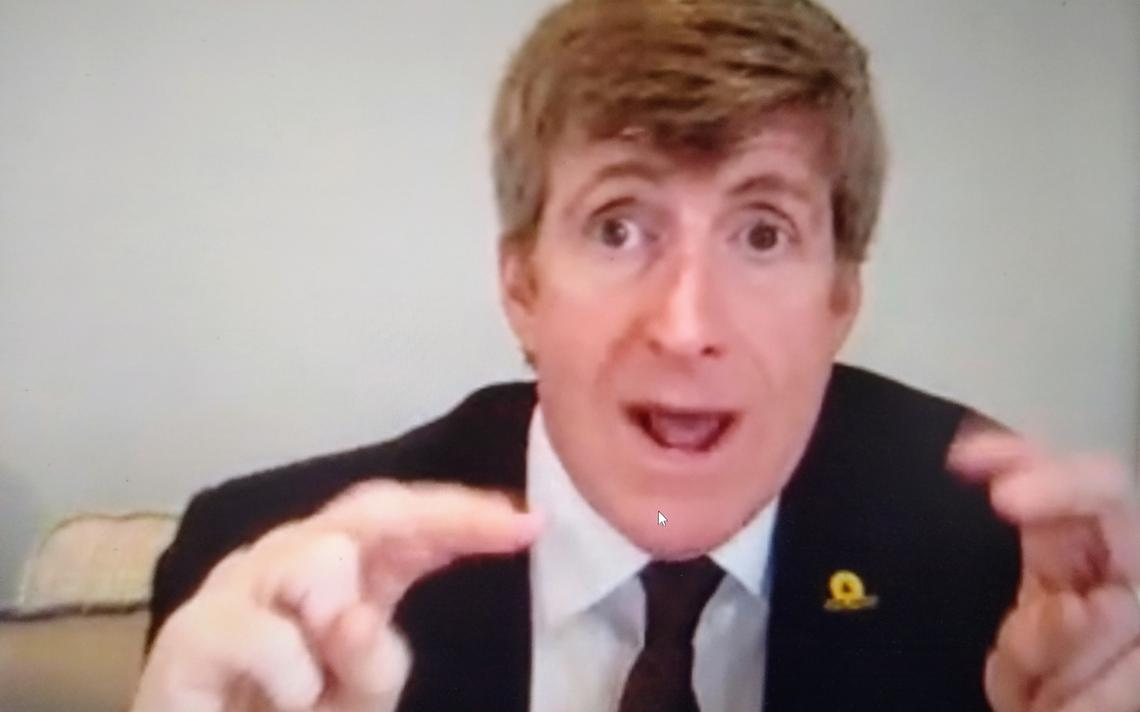Suicides, drug overdoses the ‘next COVID-19,’ Patrick J. Kennedy warns


Former Congressman Patrick J. Kennedy on Wednesday, April 29, warned of a “coming epidemic of suicide and overdose” stemming from the COVID-19 pandemic and called for strong public-policy measures to counteract the threat.
The nephew of a president and the son of a senator, Kennedy was the keynote speaker for a virtual summit of the Minnesota Health Action Group, which consists of business, nonprofit and governmental employers seeking to control health costs.
He noted that prescription numbers for benzodiazepines, which are used to treat such maladies as alcohol withdrawal, panic disorder and anxiety, have gone up 40% in the past few months.
“We all know that when people are economically displaced, their risk for suicide skyrockets,” Kennedy said. “And of course we know that they’re turning to self-medicate with drugs and alcohol.”
The nation’s jobless rate in the wake of the pandemic-caused economic shortfall rivals that of the Great Depression, Kennedy said.
An eight-term member of Congress and the son of Sen. Edward Kennedy, Patrick J. Kennedy was frank about his own and his parents’ struggles with alcoholism and mental illness. He was invited, as a 27-year-old first-term member of the House, to be lead Democratic sponsor of the Mental Health Parity and Addiction Equity Act, he said, because he had nothing to lose.
“Everyone in my district in Rhode Island already knew that I’d been to rehab and that I was seeking ongoing therapy from a psychiatrist,” Kennedy said.
He noted that the bill was championed in the Senate by a Minnesotan, Paul Wellstone, and that his Republican co-sponsor in the House was also a Minnesotan, Jim Ramstad. He also mentioned that earlier legislation, the Community Mental Health Act, was the last bill signed into law by his uncle, President John F. Kennedy, before he was assassinated.
Although the Parity Act also became law, mental health and substance abuse still receive inferior attention compared to other illnesses, said Kennedy, who now directs The Kennedy Forum, a nonprofit focused on mental health and addiction treatment.
“We recognize how bad COVID-19 is, but every year we’re losing twice as many people as we have lost in COVID-19 to suicide and overdose,” he said.
He implicitly criticized the response of the Trump administration to COVID-19, saying the U.S. “didn’t follow the science, we didn’t follow the experts and our nation has paid a very high price.”
Now, he said, the nation must make policy changes and appropriations for the “next COVID-19” as joblessness, economic insecurity and social isolation begin to take a toll on mental health.
Kennedy called for a “Recovery Corps” modeled after the Peace Corps that would send people across the country to coordinate care, answer suicide hotlines and connect people to housing and supportive employment, among other things.
He also called for full funding of the Nurse Family Partnership, a nonprofit that provides home visits by registered nurses to low-income, first-time expectant mothers.
“The single largest cause of intellectual disabilities in this country is babies born under the influence,” Kennedy said. “And there’s no reason that should happen if we as a nation treated this as a public health issue.”
The daylong summit was focused entirely on strategies for better responding to mental health and substance abuse disorders.
“The COVID-19 pandemic’s intense pressure on our society and the workplace calls for heightening our collective focus on mental health care and outcomes,” Mamie Segall, CEO of the Action Group, said in a news release.
 Pathways Drug Rehabilitation Luxury Addiction Treatment & Detox Center
Pathways Drug Rehabilitation Luxury Addiction Treatment & Detox Center


